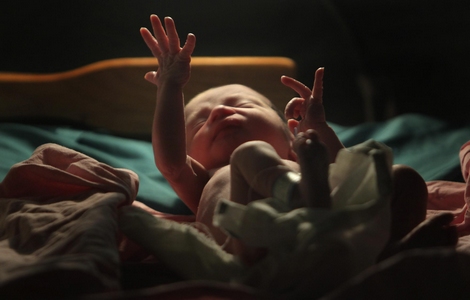GUANGZHOU - The Chinese animation industry has been striving to achieve international fame and promote Chinese culture through exports, a move that is being seen as part of the government's plan to strengthen its soft power and extend its influence, industry insiders and experts said.
The industry's ambitions have been backed by a surge in both production and revenues, thanks to the country's supportive policies. China produced 385 animated films last year, a 28 percent year-on-year increase. The industry also earned more than 500 million yuan ($78.7 million) from exports in 2010, jumping by 60 percent year-on-year, according to the State Administration of Radio, Film and Television.
Industry insiders have also attributed the rapid export growth to an emphasis on originality and creativity among Chinese animators.
The industry previously operated as a mere "manufacturer" of foreign animation products, winning little global recognition, said Ye Zhenghua, a professor from the Guangzhou Academy of Fine Arts. But the industry has managed to quickly restructure itself and shift its focus to creating original products, thus creating a more prosperous market, Ye said.
Jin Cheng, president of Comic Fans magazine, said several domestic animators have already established themselves in the international arena.
Animator Xia Da has successfully serialized one of his works in Ultra Jump, one of Japan's most popular comic magazines, Jin said.
Jin said that while original products continuously spur the industry to grow, deeper engagement with the global animation industry has created opportunities for Chinese animation exports as well.
A popular Chinese cartoon called "Pleasant Goat and Big Big Wolf" has been translated into 17 languages and shown in over 50 countries and regions, partially because of an agreement inked between the Walt Disney Company and Creative Power Entertainment, the cartoon's producer, according to Wu Dun, communications director with Creative Power Entertainment.
Chinese animation has started to gain acclaim around the world, becoming increasingly popular in southeast Asia and the Middle East, Jin said.
Chinese animation can act as a vanguard for the export of Chinese culture, said Leng Song, general secretary of the world media research center of the Chinese Academy of Social Sciences. Animation is rarely affected by cultural barriers and can be easily understood and accepted by the general public, Leng said.
Animation exports also allow China to show the world its values, Leng said.
Ye said that even though Chinese animation does not explicitly discuss Chinese history or traditions, it can still teach foreign audiences about Chinese culture because the stories told through the animation are deeply rooted in Chinese values.
Industry insiders and experts, however, admitted that Chinese animation is mainly driven by huge investment, with producers lagging far behind their Japanese and American counterparts in terms of developing overseas markets.
They also agreed that some fine art schools in China are not in touch with international market demands,
Chinese animators need to consider how to infuse more Chinese cultural elements and still maintain overseas popularity, Wu said.
Wu contended that the government can make greater efforts to promote animation as a part of social culture, not just entertainment for children. Authorities should intensify their efforts to protect intellectual property and help the industry to better market its products, he said.
China's central authorities on Tuesday released the full text of a guideline adopted by a plenary session of the Communist Party of China (CPC) Central Committee, urging authorities to attach more importance to cultural development and boost the cultural industry.
The 17th Central Committee of the CPC held its Sixth Plenary Session in Beijing between October 15 and 18, and the plenum discussed issues regarding the reform of the country's cultural system.










